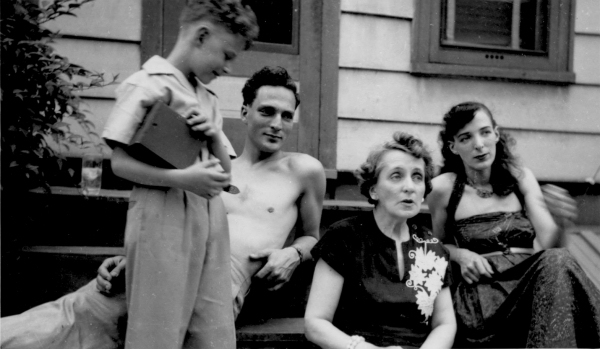Tragedy
In late 1943, there was an eerie juxtaposition of events.
Lee and Bob went to bed one night and Lee laid awake contemplating how to tell Bob the next morning that she wanted to divorce him. She knew that she didn't love him, maybe never had, and was certain he held no love for her. A lifetime of the current state of affairs would be intolerable, so she had made the hard choice to end it. When they woke up in the morning, Bob said he felt very weak and was feeling some numbness in his legs. During the day, the problem grew progressively worse and a doctor was called. This was a time in US history when a major polio epidemic was just beginning. The doctor had him transported to the hospital where over a period of a few days, a paralysis overtook him from toe to neck. Eventually, he was placed in an iron lung and the illness was officially diagnosed as polio. The prognosis was very bad, with a high probability of death within days or weeks.
Amazingly, Bob did not succumb, probably because of his athleticism. But the paralysis subsided very slowly. He eventually was taken of the breathing apparatus and he regained use of his arms. He was in the hospital for over a year, with Lee working as a riveter and spending her free time at his bedside. Care of the young Gary became the burden of her parents. During the hospital stay, a reevaluation of Bob's condition revealed that he had not contracted polio; the new diagnosis was Landrie's Paralysis, now known as Guillan-Barré Syndrome. The paralysis completely disappeared and feeling returned to his legs. But, tragically, his leg muscles had atrophied to the point where his legs could no longer support him. Although physically fully-functional in every other way, he was now permanently disabled, walking only with the aid of canes and full leg braces.
Lee never mentioned a divorce. She never left him because her conscience wouldn't permit it. With all that Bob had suffered in his life, she couldn't bear to add her leaving to the misfortunes. She was now tending to him fulltime. When Bob was ready to be released from the hospital, Lee approached his mother, Tessa, to plead with her to allow them live in her house while he completed his recovery. For reasons unknown, she denied the request. So, Bob went from the hospital back to the despised Leopold house.
In late 1944, Bob and Lee moved to a small bungalow near the Delaware River, north of Yardley, PA. Lee worked, Gary went to nursery school, and Bob spent the day sitting and doing nothing much except shooting a .22 at an occasional crow that threatened their "victory" garden. But the cost of living, even with help from Lee's parents, eventually took its toll. So, in 1946, they moved back to the Riverside Avenue house in Trenton. Joe, meanwhile, had returned from the war shortly before V-E Day, recuperating from a serious wound.
The strain of the preceding five years finally peaked and Lee had a nervous breakdown. She went into a sanitarium for a few weeks where she underwent electroshock therapy. She described the experience as frightening and excruciating, not really conducive to curing what ailed her.
NOTE: Tessa's refusal to take Bob in after the hospital created an estrangement between them that added to the embitterment and deep depression that Bob was experiencing. Interaction with Bob's mother became rare, although he remained friendly with his sister and her family who lived in Ohio.

